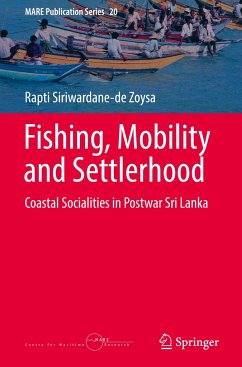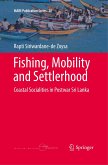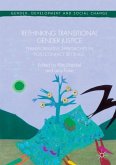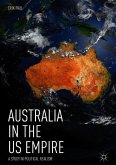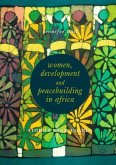This multi-sited island ethnography illustrates how the embattled politics of (im)mobility, belonging, and patronage among coastal fishing communities in Sri Lanka´s militarised northeast have intersected in the wake of civil war. It explores an undertheorized puzzle by asking how the conceptual dualisms between co-operation and contestation simplify the complex lifeworlds of small-scale fishing communities that are often imagined by scholars through allegories of rivalry and resource competition.
Drawing on ordinary interpretations and lived practices implicated in the vernacular term sambandam (bearing multiple meanings of intimacy and entanglement), the book traces how intergroup co-operation is both affectively routinised and tactically instrumentalised across coastlines, and at sea. Given its distinct focus on translocal and ethno-religiously plural collectives, the study maps recent historic formations of diverse practices and their contentions, from networked 'piracy' and dynamite fishing, to collective rescue missions and coalitional lobbying.
Moreover this work serves as an open invitation to academics, policymakers and activists for re-imagining multiple modes of ethical being and doing, and of everyday sociality among so-called 'deeply divided' societies.
A rich ethnography that pays meticulous attention to a complex social fabric made up of locals, settlers and migrants, with multiple linguistic and religious affiliations, sometimes contending fishing practices, and migration and livelihoods patterns as they have been affected by tsunami, war and the aftermaths of both. It draws from and speaks to a range of disciplines - from political science and sociology, to critical geography and cultural studies, and contributes to diverse fields of inquiry, including conflict and its relationship to a "cold" peace; coastal/maritime livelihoods; identity, cooperation, and collective action.
- Aparna Sundar, Assistant Professor of Politics, Ryerson University
By unveiling the vast heterogeneity of fisher migrants and settlers, the book demonstrates in an excellent way how research should not merely focus on the articulations of identity, but more so the inherent properties and qualities of the diverse interdependencies they come to sustain.
- Conrad Schetter, Professor of Peace and Conflict Studies, University of Bonn
Drawing on ordinary interpretations and lived practices implicated in the vernacular term sambandam (bearing multiple meanings of intimacy and entanglement), the book traces how intergroup co-operation is both affectively routinised and tactically instrumentalised across coastlines, and at sea. Given its distinct focus on translocal and ethno-religiously plural collectives, the study maps recent historic formations of diverse practices and their contentions, from networked 'piracy' and dynamite fishing, to collective rescue missions and coalitional lobbying.
Moreover this work serves as an open invitation to academics, policymakers and activists for re-imagining multiple modes of ethical being and doing, and of everyday sociality among so-called 'deeply divided' societies.
A rich ethnography that pays meticulous attention to a complex social fabric made up of locals, settlers and migrants, with multiple linguistic and religious affiliations, sometimes contending fishing practices, and migration and livelihoods patterns as they have been affected by tsunami, war and the aftermaths of both. It draws from and speaks to a range of disciplines - from political science and sociology, to critical geography and cultural studies, and contributes to diverse fields of inquiry, including conflict and its relationship to a "cold" peace; coastal/maritime livelihoods; identity, cooperation, and collective action.
- Aparna Sundar, Assistant Professor of Politics, Ryerson University
By unveiling the vast heterogeneity of fisher migrants and settlers, the book demonstrates in an excellent way how research should not merely focus on the articulations of identity, but more so the inherent properties and qualities of the diverse interdependencies they come to sustain.
- Conrad Schetter, Professor of Peace and Conflict Studies, University of Bonn

